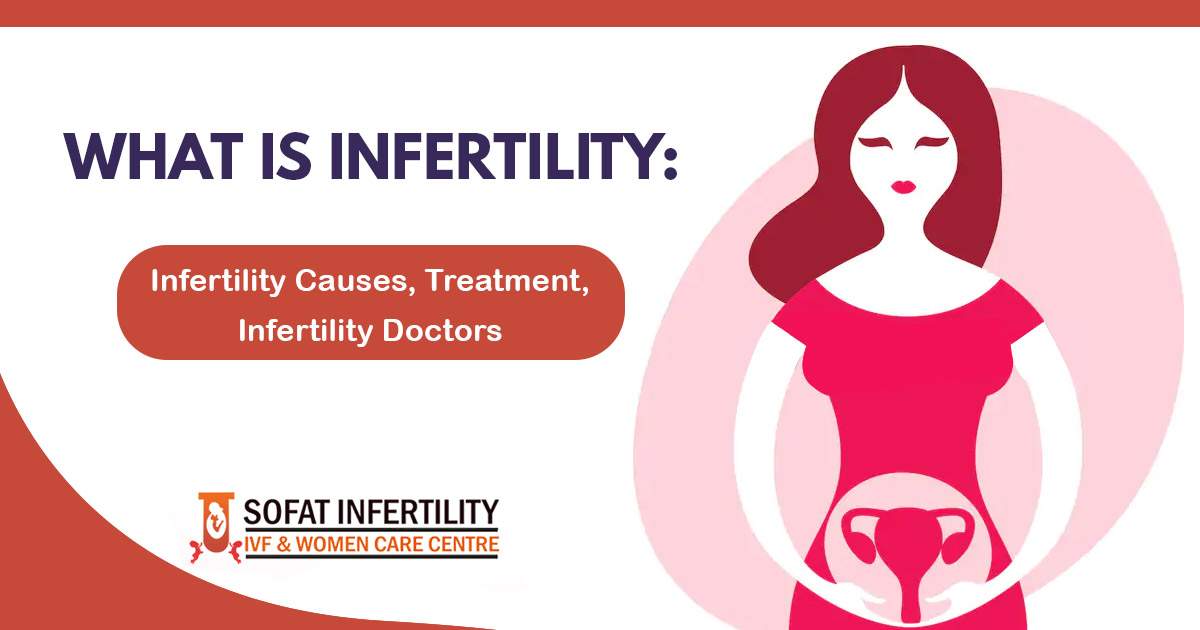![]()
Infertility
Sofat Infertility & Women Care Centre Punjab: Infertility is defined as the inability to conceive within 12 months of having unprotected sexual intercourse. One can get the causes diagnosed by visiting the IVF centre.
Causes of infertility women
Irregular menstrual cycle:
A woman’s menstrual cycle is usually 21 to 35 days long. However, some women may have a longer cycle which makes it difficult to estimate the ovulation date. A woman with an abnormal cycle usually ovulates 14 days before the next period. In women with a longer menstrual cycle, it becomes difficult to calculate her ovulation day. In some women ovulation might be completely absent.
High Maternal age:
A woman who is 35 years or older has lower chances of conception as the quality of her egg starts declining as she ages. The quality and the number of eggs go for a dip after a certain age. There are also chances of having a genetically normal egg also decreases with the advancing age. Therefore a fertility evaluation is recommended if a couple with the female above 35 has not been able to conceive after 6 months of trying.
Pelvic infections or sexually transmitted diseases in the past:
People with sexually transmitted infections, such as chlamydia or gonorrhea, can be rendered infertile as they can cause inflammation and permanent scarring in the reproductive organs. If the fallopian tubes are scarred, then it could pose a problem in conception. HSG test may be used to evaluate if the fallopian tubes are open.
Uterine fibroids or endometrial polyps:
A woman can become infertile due to uterine abnormalities. Uterine abnormalities occur in the form of fibroids and endometrial polyps. These can retard the functionality of the endometrium and lead to lower implantation and pregnancy rates.
Male factor infertility:
The trouble could lie with the male in the form of low sperm count or motility. Male infertility can be diagnosed by getting a semen analysis done.
Treatment Options
1) Medications: Various medications may be administered to stimulate the ovary to produce mature eggs for ovulation. They are administered in the form of oral pills taken and injections. Usually, clomiphene citrate is given. Injections of FSH and LH (luteinizing hormone) can also be given.
2) Insemination: Intrauterine insemination (IUI) is a process by which the sperm sample is obtained from the male partner. The sample is then washed and placed into the uterine cavity, making the chances of conception higher.
4) In Vitro Fertilization (IVF): IVF is a process in which the eggs are collected from the woman’s body and the sperms are collected from the male partner. The egg and the sperms are made to interact with each other in a lab petri dish. If everything goes well, the embryos are formed. They are screened according to their robustness and stability and implanted into the woman’s uterus. ICSI technique may also be used with IVF.







